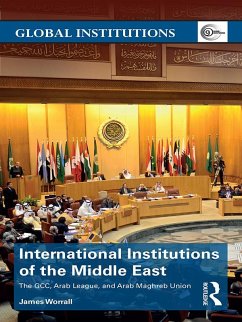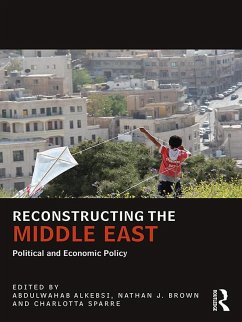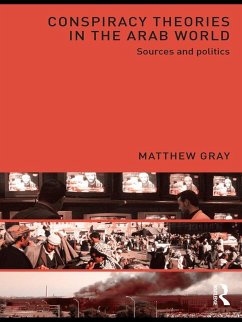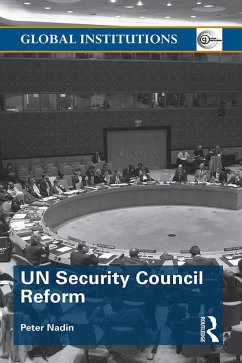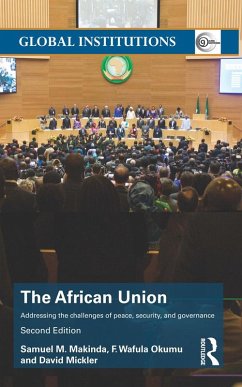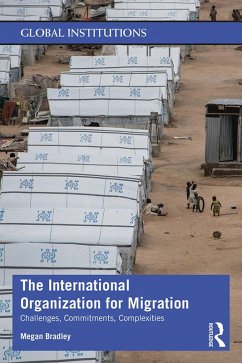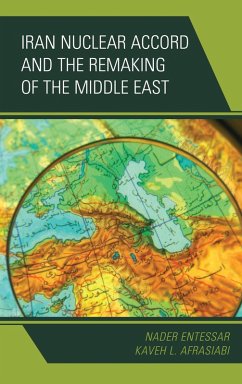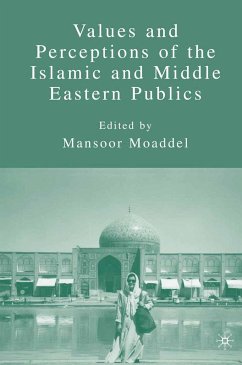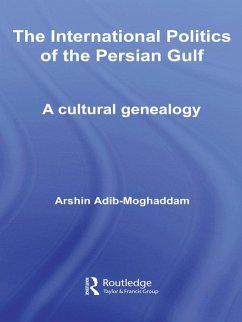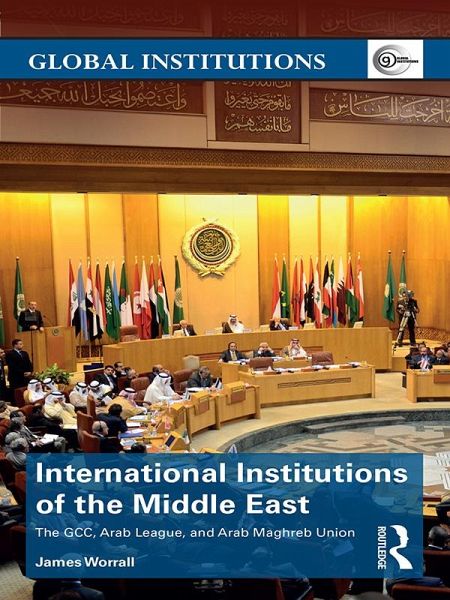
International Institutions of the Middle East (eBook, PDF)
The GCC, Arab League, and Arab Maghreb Union
Versandkostenfrei!
Sofort per Download lieferbar
42,95 €
inkl. MwSt.
Weitere Ausgaben:

PAYBACK Punkte
21 °P sammeln!
This volume is a key text for understanding the major regional international organizations of the Middle East. Analysing the Arab League, the Gulf Cooperation Council, and the Arab-Maghreb Union in a concise and accessible format, it explores their successes and failures across their full range of activities (economic, social, and political), while contextualising the reasons why many consider that these organizations have stalled.The book:- assesses the reasons why IOs in the Middle East are under-developed relative to neighbouring regional organizations;- explores their history, evolution, a...
This volume is a key text for understanding the major regional international organizations of the Middle East. Analysing the Arab League, the Gulf Cooperation Council, and the Arab-Maghreb Union in a concise and accessible format, it explores their successes and failures across their full range of activities (economic, social, and political), while contextualising the reasons why many consider that these organizations have stalled.
The book:
- assesses the reasons why IOs in the Middle East are under-developed relative to neighbouring regional organizations;
- explores their history, evolution, and structure, while considering the successes and failures of each IO;
- analyses the reasons for the specific difficulties faced by each organization through the context of intra-regional relations;
- develops a new framework for analysing the forces that have shaped these bodies and challenges the existing narrative that largely ignores the achievements and prospects of the organizations;
- considers the likely impact of the Arab Spring upon the future development of these frequently overlooked regional international organizations.
This book will be of great interest to students and scholars of Middle East studies, international organizations, and global governance, as well as diplomats and policymakers
The book:
- assesses the reasons why IOs in the Middle East are under-developed relative to neighbouring regional organizations;
- explores their history, evolution, and structure, while considering the successes and failures of each IO;
- analyses the reasons for the specific difficulties faced by each organization through the context of intra-regional relations;
- develops a new framework for analysing the forces that have shaped these bodies and challenges the existing narrative that largely ignores the achievements and prospects of the organizations;
- considers the likely impact of the Arab Spring upon the future development of these frequently overlooked regional international organizations.
This book will be of great interest to students and scholars of Middle East studies, international organizations, and global governance, as well as diplomats and policymakers
Dieser Download kann aus rechtlichen Gründen nur mit Rechnungsadresse in A, B, BG, CY, CZ, D, DK, EW, E, FIN, F, GR, HR, H, IRL, I, LT, L, LR, M, NL, PL, P, R, S, SLO, SK ausgeliefert werden.




